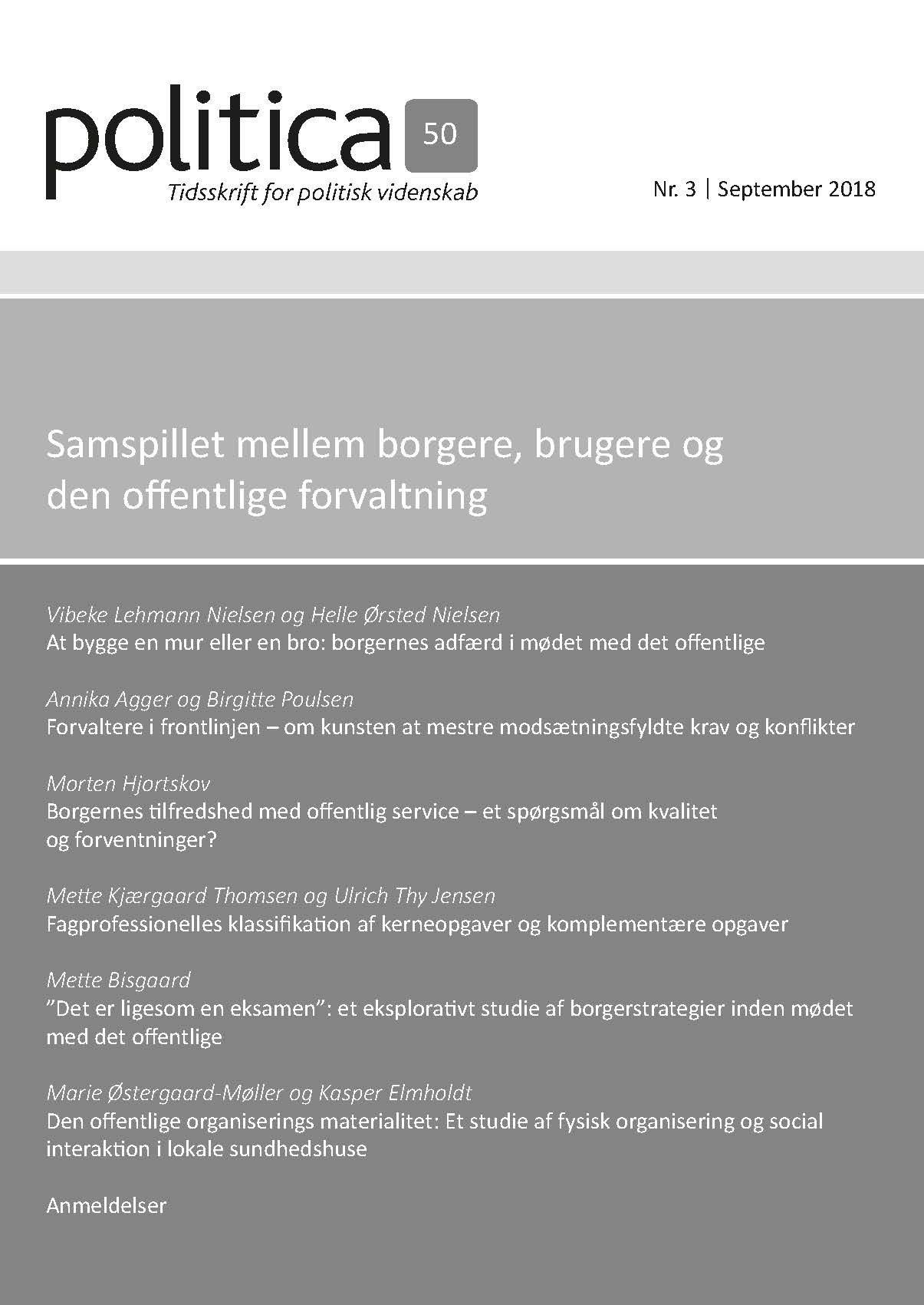Working in the frontline: The art of balancing between opposing demands and conflicts
DOI:
https://doi.org/10.7146/politica.v50i3.131187Abstract
According to recent studies in implementation research, the quality of the interplay between front-line staff and target groups, affects the degree to which policy is implemented. Therefore, the ability of front-line workers to balance between ensuring professional knowledge and at the same time facilitate inclusive processes is of great importance in co-production processes with citizens. Despite the growing interest in co-production and interactive processes, there are relatively few studies that focus on what happens in practice when front-line staff aims to build trust and coordinate action between conflicting interests. In this article, we investigate how front-line workers experience and handle conflicts through their work in co-production processes. Theoretically, we employ theories of street-level bureaucracy and conflict resolution. Empirically, we draw on a study of 16 front-line managers in urban renewal efforts in Malmö and Copenhagen, characterized by active involvement of citizens.





